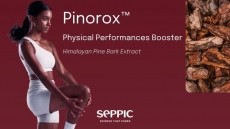Specialty positioning helps insulate suppliers from soft spot in sales of calcium supplements

Oz segment helps to depress market
Calcium has come under a cloud in the past few years as questions have been raised about its effects in heart attack or stroke. It’s a physiological fact that the plaques that form in arteries contain calcium and these plaques are strongly associated with higher risks of heart attack and stroke. Whether these plaques are the cause or the symptom, though, remains unclear; some experts have suggested that the plaques may form as part of the body’s repair response to deal with underlying poor endothelial function.
Nevertheless, calcium, which is an essential mineral after all, has been demonized to some degree. In 2013, a segment on the Dr Oz Show recounted the risk of taking in too much calcium. Oz cited the 2013 JAMA study that men aged 51-70 who took 1,000 mg of calcium per day increased their heart attack risk by 20% (the effect was not observed in women). Though Oz on his blog has supported the use of moderate amounts of calcium in connection with vitamin D3 and other minerals, the bombastic nature of the show mentions seems to have overshadowed this more nuanced message delivered through a lower-profile channel.
Recent data from the market research firm SPINS, which gathers data in the natural channel, suggests that the show segment and the questions in the medical community have had their effect. For a 12-week period ending in early February the firm found that sales were down 3.6% year over year, coming in at $76.2 million as opposed to $79 million for the year previously. The picture for the year ending about the same time was even worse: Sales were down 6.3%, coming in at $332.4 million as compared to $354.7 million.
SPINS data gathering has its weaknesses; it doesn’t include Whole Foods, the giant in the channel, though this less of an issue for supplement sales than it would be for foods. Calcium suppliers and other stakeholders contacted by NutraIngredients-USA agreed in general that there has been an effect on sales, they don’t necessarily ascribe to the depth of the decline shown by the SPINS data and also stressed that the decline is not uniform across the board.
One stakeholder who agrees that sales are down strongly is Eric Anderson, senior vice president of sales and marketing for Norwegian firm Nattopharma, which markets a form of vitamin K2 branded as MenaQ7. The primary application of the vitamin is in bone health formulations where data shows the menaquinone 7 form helps modulate the mobility of calcium into and out of the bones.
“If you take the year-over-year declines and add them up over the last few years sales are off 30% to 40%,” Anderson told NutraIngredients-USA. “When Dr Oz goes on and says that calcium is one of his three biggest health concerns that has an effect. But what the JAMA paper and others did not do is to put into context what the vitamin K2 status of this population is.
“It’s bad publicity. The media love to run stories that bleed; they don’t like to run stories that are positive. The same thing happened to multivitamins,” he said.
Specialty positioning helps
Calcium suppliers said it depends on what form of the mineral you are offering. Sales of calcium-only supplements, a market served mostly by bulk suppliers, have indeed suffered. But suppliers offering specialty forms of the mineral said that they have not been hurt in the recent situation, leading to the assumption that consumers who are willing to pay more for a supplement that includes not just calcium but vitamin D3 and perhaps K2 and magnesium as well are more sophisticated and informed and are not so easily swayed by the winds fanned by the most recent negative or equivocal study.
Albion Human Nutrition is a Utah-based supplier that offers specialty forms of minerals formed into chelates, that is, bonded with amino acids to improve absorption. This more expensive form of the mineral is aimed at more sophisticated products, and Todd Johnson, Albion’s director of marketing, said this has helped insulate the company from the dim sales picture.
“We are seeing declines in the overall US market of about 2.5%. Calcium as an ingredient has been around for a long time; it is somewhat of a mature mineral. There have been different studies over the years, pro and con,” Johnson said.
Andy Clutter, market manager for Missouri-based Jost Chemical Company, agreed that being on the thin, specialty edge of the calcium wedge helps to avoid the vicissitudes of the commodity market.
“The calcium that we sell tends to go into more specialty applications. Our calcium sales have not dropped; they continue to grow,” he said.
“We can do very specialized particle sizes. It’s something not everyone can do. We can do particle sizes from less than 6 microns and in some cases less than 2. These are things that go into liquid formulations where they don’t want deposition. At that size, just the small size of the particle will keep it suspended,” Clutter said.
Finished product sales trending back up
On the finished product side, Rory Lipsky, senior director at Jarrow Formulas, said he has observed a definite soften in the market for calcium supplements over the past few years. But he said the trend lines are looking back up.
“In 2012 was when the articles first starting coming out questioning the connection of calcium to heart health. In 2014 was when information came out that either refuted that claim or gave it a more nuanced meaning,” Lipsky said. “We felt the pain in 2012 and 2013 a bit. But we think we have survived the PR hit and we are trending back positive.”
Lipsky said that consumers are becoming more aware of the importance of getting the right form of minerals and of taking them in conjunction with one another and this is one element that is helping to underpin the coming resurgence in sales.
“People know that you don’t just need calcium; you need vitamin D3, K2 and magnesium, too. Overall the recent trend line in sales for us has been up. And the current sales line will start pushing past the trend line sometime this year as the market continues to get more awareness of how these ingredients work together,” he said.
Calcium’s declining share
Albion’s Johnson agreed with Lipsky’s take on the increasing sophistication of the market. He said he has seen this with the greater awareness of a broad array of minerals among sports nutrition formulators, a development that might serve to decrease the relative importance of calcium even as it might boost the bottom line.
“In the sports nutrition world, they are taking a wider view on certain minerals. I don’t think calcium is declining greatly, but its share of the overall mineral bucket is getting smaller as formulators look at iron and magnesium. Some projections show magnesium sales will outpace those of calcium by 2020,” he said.
















